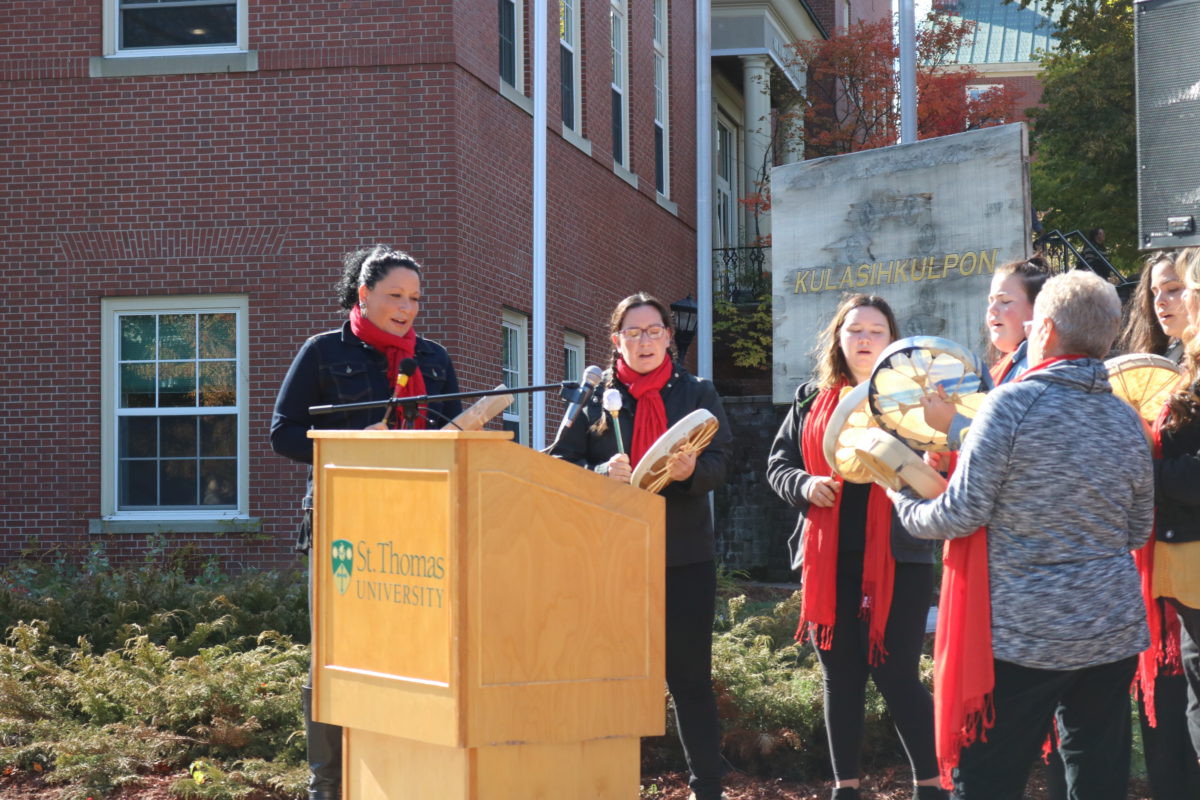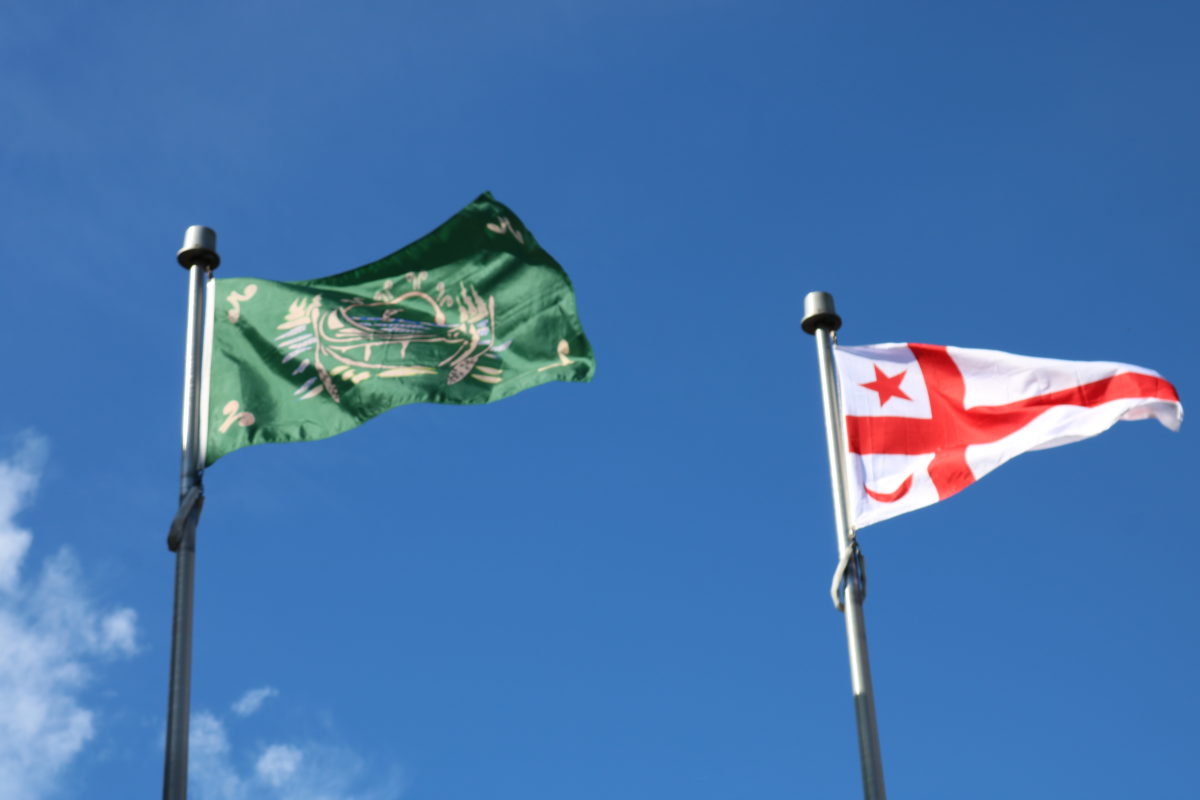St. Thomas University raised the Wəlastəkewiyik and the Mi’kmaq Grand Council flags on Oct. 15.
Approximately 50 people watched as Trenton Augustine, STU’s Aboriginal student services coordinator and Hon. Graydon Nicholas, the Endowed Chair in Native Studies at STU, raised the flags outside James Dunn Hall.
As the flags were raised, the Sisters of the Drum performed a song.

Shelley Augustine, a STU student from Elsipogtog First Nation, said it’s about time the flags were raised.
“[This is important to the STU community], because it has a connection. It has a connection to our identity, and an acceptance of our identity and where we come from in our past, that this education is offered to us also,” she said.
“I’m really proud and really happy that it’s happened.”
Miigam’agan, STU’s Elder-in-Residence, spoke before smudging the flags.

“The flags today represents who we are, our identity and our responsibility to the land that we all live on and how we can live together in peace and in friendship,” she said.
“It’s an honour today. I am very grateful, here at St. Thomas University, that this acknowledgement is taking place.”
St. Thomas University sits on unceded, traditional territory of the Wəlastəkewiyik. When STU first opened as St. Thomas College in Chatham, it sat on the traditional territory of the Mi’kmaq.
President Dawn Russell said the flag raising is a response to the Truth and Reconciliation Commission’s 94 Calls to Action.
“St. Thomas is responding to the Truth and Reconciliation Commission’s calls to the university to be leaders in resetting the relationship between Indigenous and non-Indigenous communities.”
Russell said the flags raising will permanently acknowledge that STU is located on the traditional territory of the Wəlastəkewiyik.
St. Mary’s First Nation chief, Allan (Chicky) Polchies Jr., was invited to speak at the flag raising.
“All the guests that come [to STU], will see those flags and they’ll identify that they’re on this territory. And that this university takes a stand and acknowledges the Indigenous people of this beautiful country we call home, Canada,” he said.
“We’re very gifted people here, and I believe that education is what it’s all about. We’re educating one another. When we educate, our minds work for us, we walk together in harmony, peace and friendship.”

